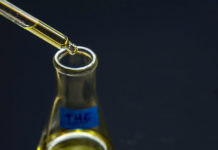A recent study found that a parent’s high level of disapproval regarding drugs actually mitigated a teen’s risk of drug abuse.
The study, published in the journal Addictive Behaviors, revealed that if a child has a friend whose parent is authoritative, the child is 40 percent less likely to drink and become drunk, 38 percent less likely to binge-drink, 39 percent less likely to use cigarettes, and 43 percent less likely to use cannabis than a child who’s friend’s mother is careless and neglectful.
If an adolescent has an authoritative parent, the probability of drinking to the point of drunkenness is reduced by 57 percent and the chances of smoking are reduced by 43 percent.
Researchers concluded that strengthening parental disapproval when it comes to drug use might actually reduce adolescent drug abuse, and investing in these types of interventions might work effectively because of the direct connection between children and parents.
In addition to the study, parents with addictions focus less on their children, which increases the likelihood of following in their parent’s footsteps.
“If the parents are preoccupied either with their own depression, their own mental illness, their own drug dependency, they will be less available to the child,” said John Bachman, Ph.D., licensed psychologist at the El Dorado Community Health Center in Placerville, CA.
“Depending on how long something like that lasts, that would set the child up to feel hungry for affection, attention, approval and acknowledgment; all the kinds of emotional nurturance that children rely on parents to provide,” he said. “If that’s missing, then that child is going to be and feel deprived.”
Children who feel isolated or don’t receive attention and affection from parents are much more likely to grow up with a number of harmful symptoms, including eating disorders and addictions.
Through peer groups, they are more likely to find “a drug of one kind or another that at least temporarily alleviates that feeling of emptiness and hunger inside,” Bachman said. “The drug of choice is the result of trial and error, and part of that trial and error is an experiment to find which drug or which compulsive activity eliminates that inner sense of emptiness.”
Bachman said it’s difficult to predict how long a child will stay addicted to a drug since every individual reacts differently. Unless people on a drug dependent path are shown a different way, they are likely to… (continue reading)

















